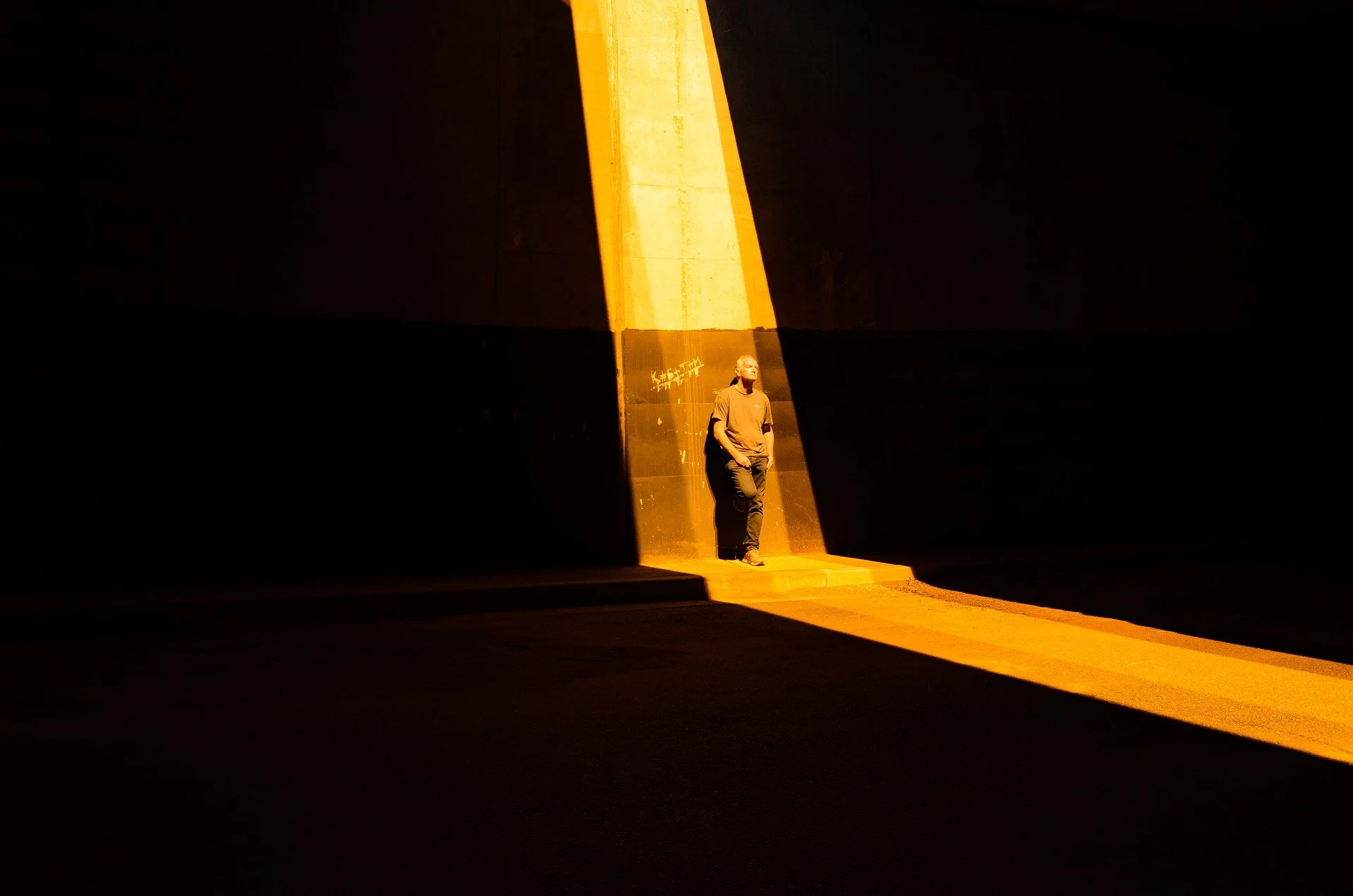Inspiration vs. aspiration
Sometimes it’s better when you can see only the path ahead of you. But it’s lonely. (Image by Steward Masweneng)
Catching up with TikTok friends on a Sunday morning, I was intrigued by a tag on a new acquaintance’s post: #skoolie.
Clicking on it, I found myself in a world of people who are taking #vanlife to the next level by converting old school buses into tiny homes and using them to explore the country.
I don’t think I’ll ever be one of them — driving is one of my least favorite activities. But I watched several videos and enjoyed them for a number of reasons.
As someone who lives in a very small house, though not a tiny house, I got some decor and storage ideas.
As the co-owner of a very livable sailboat, I enjoyed a fresh perspective on the concept of a “mobile home” and felt excited about the possibilities for next season.
And as a content creator on TikTok, it’s always fun to see how others use the medium to share ideas, especially highly visual ones.
However, the level of polish and professionalism on one account got me thinking about the distinction between inspiration and aspiration. At what point does the sweetness of possibility curdle into the bitterness of resentment brought on by the knowledge that the life we’re getting a glimpse into can never be ours?
One thing I have learned is that whether we experience inspiration or aspiration from a given piece of media is highly subjective. I can now be inspired by something that used to spark envy simply because my perspective changed.
But I’m also aware that, as a content creator, there are choices I can make to send one message or the other. If my intent is inspiration, I’m trying to say, “Look what you could do!”
On the other hand, an aspirational piece of content might be a way to deliberately say, “Look what I can do.” And if it’s masquerading as inspirational content in order to conceal this self-aggrandizement, that’s at best a bit vain; at worst, it’s a destructive and cruel act.
Plenty of people love openly aspirational material; they love to peek into the homes of the fabulously wealthy, make wish lists of the products an influencer is recommending, and live vicariously through the exploits of attractive, famous, and successful people.
I think the transparency of it is what makes it work. It’s not trying to be humble. It’s not trying to say, “this could be yours.” It’s a celebration of the beauty, opulence, or creativity of those who possess it. We can be glad for them.
Without that transparency — and without the acknowledgement that there may be dozens of people and hundreds of hours behind the scenes to achieve a particular effortless-looking result — those who engage with such aspirational content looking for inspiration are likely to feel the emotional equivalent of dessert without dinner: empty, unsettled, and a little ashamed.
From that state of dissatisfaction and disillusionment, even something genuinely meant to be inspiring can be received as just more noise — just another trigger to bring up a sense of inadequacy and isolation.
For a long time, this understanding made me hesitant to share anything at all. The last thing I wanted to do was make someone feel bad. But eventually, I got over myself. I realized that if I didn’t like the way something made me feel, I could stop paying attention to it.
Thus, I decided that the best I could do was create something to try to educate, inspire, or entertain, and if someone else found that it caused a problem for them, they could ignore me.
I’m glad I finally let go of taking responsibility for how I’m perceived. It required that I let go of holding other people responsible for how I perceived them and owning my own reaction to what I see and hear. In the process, I’ve found artists, educators, and leaders whose messages I find valuable — and I’m finding an audience of people who find my messages valuable. My world has expanded. It was worth the discomfort.
The English lyrics of Jobim’s “The Girl from Ipanema” are embarrassingly banal: A boy sees a pretty girl every day and is sad because she doesn’t notice him.
In the original Portuguese lyrics, on the other hand, poet Vinicius de Moraes gives us a more subtle truth. Though the sight of the girl gives the singer a sense of longing, he is grateful that the girl’s mere existence makes the world more beautiful.
I don’t always feel this way about the beautiful things I see and hear. Sometimes, I feel jealous. Sometimes, I feel resentment on top of the jealousy when I get the sense that someone is trying to make me feel jealous.
That said, I’m working on finding that sense of gratitude. I’m working on a sense of acceptance. And I’m working on a sense of humility, remembering that not everything I perceive is fact.
It’s an ongoing challenge. The work of others helps me to reckon with it. And when it doesn’t — when, instead, it makes my path harder — I can let it go. There will be something else out there for me. Something I can truly aspire to, not just passively admire.





